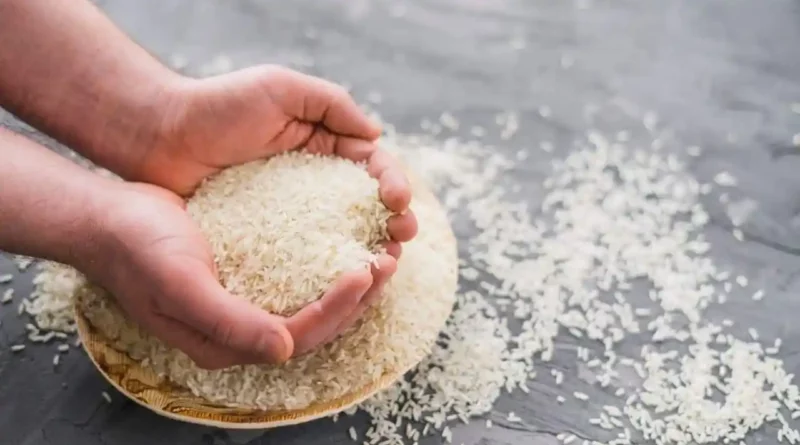Farmers, traders worried as Centre’s cap on basmati export leads to price fall
By Gurpreet Singh Nibber, Neeraj Mohan
Owing to the restrictions imposed by the Centre by fixing the minimum export price (MEP) of $1,200 ( ₹99,589) a tonne for the basmati rice exports, not only traders but the farmers are at the receiving end.
The restrictions have resulted in a fall in wholesale prices of aromatic basmati paddy varieties by up to ₹800 per quintal, while the exporters in the country have not received the orders from the importers in Middle Eastern countries for the upcoming season.
In Punjab, the restrictions are likely to affect the aromatic basmati variety 1509 which has started arriving in the state mandis.
In Punjab, the 1509 variety of basmati is sown in over 50% area under paddy cultivation, out of a total of 6 lakh hectares area under premium grain cultivation. In the rest of the area, aromatic varieties like 1121, 1718 and PUSA varieties have been sown, which will be harvested in November month.
In Haryana around 17 lakh acres is under basmati cultivation. With an average production of 35 lakh MT (metric tonnes), Haryana’s share in total basmati production in the country remains around 42%.
A ground report from the mandis of Haryana reveals that the prices of the early maturing Basmati varieties Pusa 1509, Pusa 1847, Pusa 1792 and Pusa 1885 have come down to around ₹2,800 to ₹3,000 from ₹3,800 – ₹4,000 a month ago.
Basmati exporters predict that due to the embargo, the purchase prices of premium aromatic grain will fall from last year’s average of ₹3,800 per quintal, though a bumper crop is expected.
“Due to the restrictions, the prices for the premium crop have fallen by ₹400 per quintal in a week from ₹3,800 to ₹3,400 and it would further fall, which will be a loss to the farmers,” said Vijay Setia, former president of All India Rice Exporters Association (AIREA).
“We don’t understand the logic behind this MEP as there are around 36 notified varieties of Basmati how the same MEP be fixed for all the rice being exported from the country? The average price of the exported Basmati rice in the international market is $925 per tonne, as some varieties are sold at $850 and some even get around $1500, thus it is not relevant to fix the same MEP for all varieties”, Setia said.
A basmati grower in Gurdaspur decried the fall in prices and said it would lead to huge losses to growers.
“We were expecting basmati prices to rise this year but we are witnessing a reverse trend, at the very onset of the harvest. We apprehend that in case the prices continue to fall like this it will touch ₹2,800 per quintal,” said Gurinder Singh, a basmati grower from Gurdaspur.
“Due to lack of interest from the buyers, I had to sell my Pusa 1847 sown on two acres at ₹2,720 per quintal on Thursday and Pusa 1509 at ₹3,200, which caused me a loss of around ₹500 per quintal, which is calculated comes around to ₹12,000 per acre”, said a farmer Jasvinder Singh of Ladwa in Kurukshetra district.
Referring to the restriction imposed for 45 days, beginning August 25, by the Agricultural and Processed Food Products Exports Development Authority (APEDA) that functions under the union ministry for commerce, Setia said by the time restrictions would end Thailand and Pakistan will corner all the orders.
As per the traders, the government imposed the MEP following the reports of traders selling non-basmati rice in the international market by showing it as Basmati rice, as the government had banned the export of Parmal rice to tackle volatile prices and tame domestic inflation.
“Now the government has introduced a mechanism to monitor the rice export, and when the government had imposed the 20% duty on non-basmati par-boiled rice exports, there were several traders who started to export non-basmati rice in the name of basmati, a rice trader said, on the condition of anonymity.
The rice exporters have taken up this issue with the union government’s committee.
“We have already taken up this issue with the committee members and they have taken our views about this issue but they are likely to submit their report by September 26 for further action, but this delay will cost farmers are traders heavily”, said Setia.
Punjab CM Bhagwant Mann has asked Rajya Sabha MP Vikramjit Sahney to lead a delegation of MPs from Punjab to take up the matter with union minister for commerce Piyush Goyal to resolve the issue.
As per APEDA figures, last year’s foreign exchange earnings from the export of 175 lakh tonnes of non-basmati rice was ₹63,000 crore, while from the export of 45 lakh tonnes of basmati rice, the forex realization was ₹48,000 crore. Punjab and Haryana each contribute 35-40% of total exports from the country.
A deputy director-level officer of APEDA, on the condition of anonymity, said that the restrictions have been imposed to bring down the grain prices after directions from the ministry of commerce. “Keeping in view the global food grain dynamics and saving country’s stocks, these restrictions were imposed,” he said.
This article has been republished from The Hindustan Times

